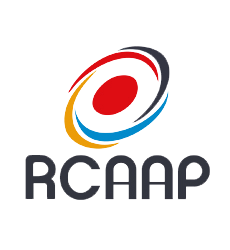OPEN CALL FOR PAPERS - NeuroCine Vol. 10 No. 2 (2025)

Time: April 23.-24. 2024
Place: Baltic Film and Media School, Tallinn University, Tallinn, Estonia
Deadline for proposals: February 01, 2024
Tallinn University/ FilmEU invites scholars and creative professionals to contribute to the 2nd International Baltic NeuroCine conference.
The aim of the NeuroCine conference is to enhance joint interdisciplinary research endeavours on cinematic storytelling, film viewing, and related first-person experiences. The paradigm of 'neurocinematics' (Hasson et al. Projections 2008), refers to experimental studies that apply neuroimaging methods to study the functional brain of several film viewers, allowing generalisation over individuals in terms of what is called intersubject correlation (see reviews Jääskeläinen et al. 2020, 2021; Tikka et al. 2023). However, it has become evident that neuro-physiological measurements alone do not suffice to fully understand how the neural data of film viewers relates to the temporally unfolding narrative content they have been viewing on one hand, and film viewers’ embodied first-person experiences on the other.
Another issue the 2nd NeuroCine conference addresses is that, so far, the focus of neurocinematics has mainly been on the film viewers, while the study of professional filmmakers has been to a great extent neglected. This is why we turn the attention also to the filmmakers. We ask, how experiences and actions of filmmakers could be addressed using neurocinematic methods? Could the accumulated understanding of the film viewers provide some clues for such an endeavour? What type of challenges such a study program might face?
We trust that by associating accumulated knowledge from distinct domains will allow a more holistic window to the phenomena under scrutiny. Hence, the NeuroCine conference invites both local and international colleagues to join the effort of bridging the explanatory gaps between (1) neuro-physiological observation data, (2) first-person experiential data, and (3) descriptive data of the experienced film content.
We invite boldly multidisciplinary papers to contribute with theoretical, conceptual and practical approaches to the experiential nature of filmmaking and viewing. They may draw, for instance, from social and cognitive sciences, psychophysiology, neurosciences, ecological psychology, affective computing, cognitive semantics, aesthetics, or empirical phenomenology. Likewise, we welcome all relevant systemic models and epistemic considerations. The focus of a submission may also focus on a specific film expertise, for example that of the writer, editor, cinematographer, scenographer or sound designer.
Contributions may address e.g.
- Social cognition and embodied intersubjectivity
- Interdisciplinary challenges for methods; annotations linking cinematic features to physiological data
- First-and second-person methodologies; empirical phenomenological observations
- Enactive mind; embodied simulation and ToM
- Embodied metaphors in film; embodied film style; bodily basis of film language; cognitive semantics;
- Cinematic empathy; emotions; cognitive identification
- Temporality of experiences; context-dependent memory coding; story reconstruction; narrative comprehension;
- Experiential heuristics; multisensory and tacit knowledge;
- Storytelling strategies, aesthetics, fIlm and media literacy; genre conventions
We look forward to proposals that target a broad audience beyond disciplinary niches in one of the following presentation categories:
- Presentations including Q&A (30 min)
- Presentations by filmmaker-scientist pairs including Q&A (40 min)
- Doctoral student case studies (20 min)
- Workshop proposals
- Demonstrations or screenings related to the theme
PROCEEDING WITH JOURNAL PUBLICATION
Simultaneously with the conference call we also open a call for papers to appear in the issue on "Cinematic minds behind the screens" to be published by the International Journal of Film and Media Arts (IJFMA), Vol. 10 No. 2, first semester 2025.
See info about IJFMA at https://revistas.ulusofona.pt/index.php/ijfma/about
We accept long research articles (4000 – 7500 words w/o ref) and short articles and commentaries (2000 – 2500 words w/o ref). Submitted papers need to follow Submission guidelines.
All full paper submissions go through the double-blind peer review process.
No fees are requested for submission or processing. IJFMA is licensed under a Creative Commons Attribution Licence that allows others to share the work with an acknowledgement of the work’s authorship and initial publication in this journal.
Read more at https://creativecommons.org/licenses/by-nc/4.0/
IMPORTANT SUBMISSION DATES FOR CONTRIBUTIONS
Key dates for submissions to the NeuroCine conference and the journal IJFMA:
1st of February 2024
Submit abstracts of 350-500 words with five literature references via email to NeuroCineBFM@tlu.ee
When submitting to the conference, please indicate your preferred type of presentation in one of the above listed categories (1-5). Also write in the email heading (1) “Conference submission” if you are submitting only a conference presentation abstract; (2) “Conference and journal submission” if you are submitting both to conference and journal simultaneously; (3) “Journal submission” if you are submitting only to the journal)
20th of February, 2024
Acceptance of abstracts to the NeuroCine conference and/or to the IJFMA journal
30th of May, 2024
Submit full manuscripts for blind peer review following IJFMA Submission guidelines
20th of September, 2024
Resubmit date for revisions for IJFMA
CONTACT EDITORIAL TEAM at NeuroCineBFM@tlu.ee
Maarten Coëgnarts https://www.filmeu.eu/alliance/people/maarten-coegnarts
Elen Lotman https://www.filmeu.eu/alliance/people/elen-lotman
Pia Tikka https://www.etis.ee/CV/Pia_Tikka/eng
Follow updates on: http://enactivevirtuality.tlu.ee/
ACKNOWLEDGMENTS
The 2nd Biannual International NeuroCine conference has made possible by:
FilmEU_RIT pilot grant Artistic Research and Cognitive Film Studies: Towards a transdisciplinary understanding of cinema (ARCF) project.
Baltic Film, Media and Arts School (BFM), an institute with wide-based international education curricula embedded in the interdisciplinary community of Tallinn University. BFM BA, MA and PhD level study programs both in Estonian and English offer tools and skills for working on various positions in film production, TV, new media, communication, choreography, art and music. Its Centre of Excellence in Media Innovation and Digital Culture MEDIT, studies cultural change and innovation processes of digital media and offers a possibility to conduct artistic research in the field of audiovisual arts.
The Baltic NeuroCine research group at BFM is led by the research professor Dr. Pia Tikka and cinematographer Dr. Elen Lotman. Activities of the 2nd Baltic NeuroCine Conference are also supported by Pia Tikka's 5-year team grant "Cinematic minds behind-the-scenes: A neurophenomenological window to filmmaker's enactive cuing of expectations" (PRG2109) awarded by the Estonian Research Council (2024-2028).
The FilmEU European University is co-funded by the Erasmus+ Programme of the European Union. The FilmEU_RIT Research, Innovation and Transformation project has received funding from the European Union's Horizon 2020 Research and Innovation Programme. FilmEU Ref. 101004047, EPP-EUR-UNIV-2020 | FilmEU_RIT Ref: 101035820, H2020-IBA-SwafS-Support-2-2020 | ERASMUS-EDU-2023-EUR-UNIV Project: 101124314.
Views and opinions expressed are however those of the author(s) only and do not necessarily reflect those of the European Union, Erasmus Plus or Horizon 2020. Neither the European Union nor the granting authority can be held responsible for them.










